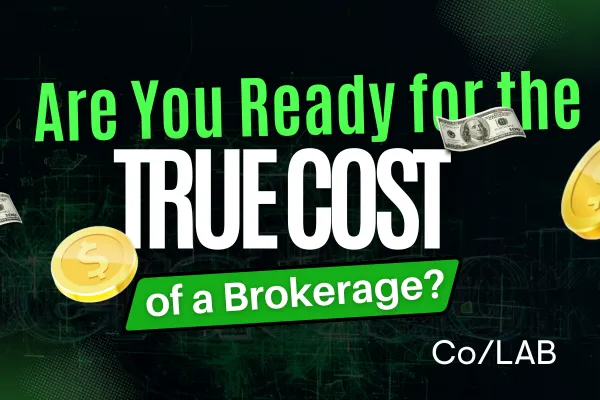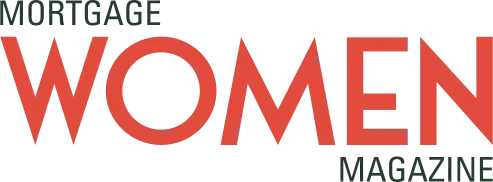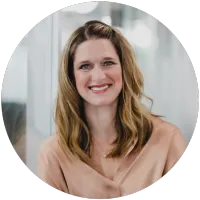BLOG
Mortgage, Real Estate, and Entrepreneurship


The Real Cost of Opening a Mortgage Brokerage: Mistakes to Avoid
The Real Cost of Opening a Mortgage Brokerage: 5 Mistakes That Will Drain Your Profits
When most mortgage brokers finally decide to take the leap and open their own brokerage, they usually think the biggest hurdle is the license. Or maybe the tech stack. Or hiring their first processor or LOA.
But here’s the truth I wish someone had told me 13 years ago: those things are not your biggest expense.
The real cost of opening a mortgage brokerage comes from the mistakes you don’t even see coming.
I know because I’ve made them.
I’ve opened three brokerages, launched other businesses, and flushed hundreds of thousands of dollars down the drain figuring it all out the hard way. That’s why I’m pulling back the curtain and sharing the mistakes that cost me—and so many other brokers—more than we ever expected.
By the time you’re done reading this, you’ll know exactly:
What’s really draining broker profits,
How to avoid the landmines that kill businesses, and
How to build a brokerage that actually makes money (not just looks busy).
And if you want more step-by-step guidance, I highly recommend checking out my blog on how to set up a mortgage broker business the right way.
Do You Really Want to Build the Wheel From Scratch?
I hear this all the time:
“I just feel like I need to do it myself. I want to make all the decisions. I don’t want outside help.”
That’s the entrepreneurial mindset, right? You want to build something 100% yours.
But let me ask you:
Are you okay with it taking 5–7 years before your business makes the kind of money you left your W2 job for?
Because that’s the reality if you choose to figure everything out through trial and error.
Here’s the part most people get wrong: skipping mentorship or systems to “save money” actually costs you five times more in mistakes, lost time, and missed opportunities.
Think about it this way: If I laid $100,000 in cash on your desk right now and told you that you could keep it, but you had to give me $15,000 to lock it in… would you do it?
Of course, you would.
That’s exactly the trade-off you’re making if you try to go it alone.
Mistake #1: Hiring Without Clarity
In 2017, one of my best years in the business, I closed 300 loans and my partner closed just over 200. On paper, things looked incredible.
But our operations payroll was $560,000.
We were throwing people at problems instead of solving them strategically.
Today? We’re closing about the same volume, but our payroll is $116,000.
👉 Hiring without clarity doesn’t just slow you down—it bleeds your profits dry.
Mistake #2: Blindly Testing Vendors
I spent $3,000 a month on a marketing agency for six months that produced zero leads. That’s $18,000 completely gone.
Then I spent $32,000 in legal fees just to structure business entities between 2022 and 2024—money I could have saved if I’d had access to the right contracts and templates.
Small brokerages don’t have the luxury of testing everything. You need vetted vendors and proven systems to run lean and stay profitable.
Mistake #3: No Accountability With Loan Officers
This is one of the sneakiest killers of profit.
If you don’t set production minimums, pricing rules, and accountability standards, you’ll:
End up paying draws and benefits to LOs who aren’t producing.
Get bogged down in drama.
Watch margins quietly vanish.
That’s why we now use accountability dashboards, production standards, and onboarding rules. Without them, you’re setting yourself up for LO churn and financial headaches.
Mistake #4: Overspending on Tech
Tech can be a blessing or a black hole.
In 2021, we spent almost $900/month on Zapier just trying to connect Arrive with our CRM. Why? Because we were testing automation after automation without knowing the right setup.
By 2024, with more volume, we spend only $195/month. The difference? We stopped guessing and started using proven systems.
👉 Tech is powerful, but without the right roadmap, it’s a money pit.
Mistake #5: Running Your Brokerage Like You’re Still an LO
This is the biggest mistake of all.
Most broker shops stay small—seven employees or less—because they’re essentially being run like a loan officer team, not a true business.
That means:
The owner still relies mostly on their own originations.
No one’s tracking KPIs, break-even points, or backend costs.
Systems aren’t built to scale.
If you want to truly own a brokerage—not just be an LO with helpers—you need to run it like a lender. That’s the only way to step out of origination and actually profit from your business.
Want more detail on this? I break it down in my blog: The Mortgage Industry in 2025: Why Brokers Are Winning & Loan Officers Are Leaving.
What Other Brokers Have Learned the Hard Way
Let me share a quick story from Toita, a broker who’s been running her shop for nearly 10 years. After working with us for just one year, she told me:
“I think I’ve learned more in the past two years than I did in the previous six. Had I known what I know today eight years ago, I would’ve made so much more money.”
She called it “death by a thousand cuts.”
It’s the slow bleed of little mistakes—payroll, vendors, tech, accountability—that you don’t even notice until years later, when you realize you’re not making what you should be.
The ROI of Getting Support
That’s why I created an ROI calculator for brokers. It’s designed to help you see the true cost of doing it alone versus plugging into systems that work.
Because once you actually run the numbers, the math is clear: the cost of mentorship and systems is tiny compared to the profit you’ll gain by avoiding the landmines.
Our clients don’t just save money—they make more money.
Frequently Asked Questions (FAQ)
1. How much money do I really need to start a mortgage brokerage?
Most people think the license and tech are the biggest expenses. In reality, the real costs come from mistakes—bad hires, wasted vendor contracts, and inefficient tech. With the right systems, you can start lean and scale smart.
2. Can I open a brokerage while still originating loans?
Yes—but if you want to build a business that runs without you, you’ll need to shift from “loan officer with helpers” to “broker owner.” That means building systems, tracking KPIs, and setting accountability standards.
3. Is mentorship really worth the cost?
Absolutely. I’ve seen brokers lose five times more money trying to figure it out on their own. Mentorship isn’t an expense—it’s an investment that pays back in saved time, avoided mistakes, and higher profits.
4. What’s the average size of a mortgage brokerage?
Most broker shops have seven employees or fewer. The difference between staying small and scaling comes down to how you run your business: like an LO team, or like a lender.
5. How do I know if I’m ready to open my own brokerage?
If you’re already closing consistent volume as an LO and you’re ready to build wealth for yourself instead of someone else, you’re ready. Just make sure you don’t go it alone.
For a deeper dive, check out my guide: How to Get Your Mortgage Broker License.
Your Next Move: Make It the Smartest One
Opening a brokerage is exciting—but it can also be expensive if you try to reinvent the wheel.
Don’t let hidden mistakes bleed your profits dry. Let’s sit down together, review your numbers, and calculate exactly how much money you could be saving (and making) by plugging into the right systems.
👉 Schedule a free discovery call with me today. It’s quick, it’s personalized, and it could change the course of your business.
Your next move could be your most profitable one yet.
Megan Marsh
CEO/ FOUNDER of Co/LAB Broker Concierge
In Case You Missed Our Previous Blogs & YouTube Videos..
Read Here: Loan Officer Wealth Gap: W2 vs Business Owner Income (5 Reasons to Own Your Career)
This blog exposes the hidden wealth gap between W2 loan officers and business owners in the mortgage industry. Let's break down why owning a brokerage creates exponentially more wealth than staying an employee—covering taxes, equity, scalability, and long-term net worth. If you’re still “renting” your career, it’s time to discover how to start owning it.
Most loan officers tell their clients to stop renting and start owning—but are you “renting” your career by working for someone else? This article exposes the real wealth divide between W2 employees and business owners, and why loan officers who own their brokerages build exponentially more wealth than those who stay on payroll. From taxes and equity to scalability and net worth, discover the five game-changing reasons why it’s time to stop cashing commission checks for someone else and start building lasting wealth for yourself.
Mortgage Broker Support
Need help starting your mortgage business? Our Mortgage Broker Concierge Team is here to assist you!
If you’re curious about how we can help you simplify your operations beyond what our videos offer and want to know how you can make launching or running your brokerage stress-free, the link below explains everything. No fluff, no “exclusive training” gimmicks—just a straightforward way to see how we work with brokers to take backend tasks off their plates. Check it out here: https://colablendingfranchise.com/book-a-discovery-call

The Real Cost of Opening a Mortgage Brokerage: Mistakes to Avoid
The Real Cost of Opening a Mortgage Brokerage: 5 Mistakes That Will Drain Your Profits
When most mortgage brokers finally decide to take the leap and open their own brokerage, they usually think the biggest hurdle is the license. Or maybe the tech stack. Or hiring their first processor or LOA.
But here’s the truth I wish someone had told me 13 years ago: those things are not your biggest expense.
The real cost of opening a mortgage brokerage comes from the mistakes you don’t even see coming.
I know because I’ve made them.
I’ve opened three brokerages, launched other businesses, and flushed hundreds of thousands of dollars down the drain figuring it all out the hard way. That’s why I’m pulling back the curtain and sharing the mistakes that cost me—and so many other brokers—more than we ever expected.
By the time you’re done reading this, you’ll know exactly:
What’s really draining broker profits,
How to avoid the landmines that kill businesses, and
How to build a brokerage that actually makes money (not just looks busy).
And if you want more step-by-step guidance, I highly recommend checking out my blog on how to set up a mortgage broker business the right way.
Do You Really Want to Build the Wheel From Scratch?
I hear this all the time:
“I just feel like I need to do it myself. I want to make all the decisions. I don’t want outside help.”
That’s the entrepreneurial mindset, right? You want to build something 100% yours.
But let me ask you:
Are you okay with it taking 5–7 years before your business makes the kind of money you left your W2 job for?
Because that’s the reality if you choose to figure everything out through trial and error.
Here’s the part most people get wrong: skipping mentorship or systems to “save money” actually costs you five times more in mistakes, lost time, and missed opportunities.
Think about it this way: If I laid $100,000 in cash on your desk right now and told you that you could keep it, but you had to give me $15,000 to lock it in… would you do it?
Of course, you would.
That’s exactly the trade-off you’re making if you try to go it alone.
Mistake #1: Hiring Without Clarity
In 2017, one of my best years in the business, I closed 300 loans and my partner closed just over 200. On paper, things looked incredible.
But our operations payroll was $560,000.
We were throwing people at problems instead of solving them strategically.
Today? We’re closing about the same volume, but our payroll is $116,000.
👉 Hiring without clarity doesn’t just slow you down—it bleeds your profits dry.
Mistake #2: Blindly Testing Vendors
I spent $3,000 a month on a marketing agency for six months that produced zero leads. That’s $18,000 completely gone.
Then I spent $32,000 in legal fees just to structure business entities between 2022 and 2024—money I could have saved if I’d had access to the right contracts and templates.
Small brokerages don’t have the luxury of testing everything. You need vetted vendors and proven systems to run lean and stay profitable.
Mistake #3: No Accountability With Loan Officers
This is one of the sneakiest killers of profit.
If you don’t set production minimums, pricing rules, and accountability standards, you’ll:
End up paying draws and benefits to LOs who aren’t producing.
Get bogged down in drama.
Watch margins quietly vanish.
That’s why we now use accountability dashboards, production standards, and onboarding rules. Without them, you’re setting yourself up for LO churn and financial headaches.
Mistake #4: Overspending on Tech
Tech can be a blessing or a black hole.
In 2021, we spent almost $900/month on Zapier just trying to connect Arrive with our CRM. Why? Because we were testing automation after automation without knowing the right setup.
By 2024, with more volume, we spend only $195/month. The difference? We stopped guessing and started using proven systems.
👉 Tech is powerful, but without the right roadmap, it’s a money pit.
Mistake #5: Running Your Brokerage Like You’re Still an LO
This is the biggest mistake of all.
Most broker shops stay small—seven employees or less—because they’re essentially being run like a loan officer team, not a true business.
That means:
The owner still relies mostly on their own originations.
No one’s tracking KPIs, break-even points, or backend costs.
Systems aren’t built to scale.
If you want to truly own a brokerage—not just be an LO with helpers—you need to run it like a lender. That’s the only way to step out of origination and actually profit from your business.
Want more detail on this? I break it down in my blog: The Mortgage Industry in 2025: Why Brokers Are Winning & Loan Officers Are Leaving.
What Other Brokers Have Learned the Hard Way
Let me share a quick story from Toita, a broker who’s been running her shop for nearly 10 years. After working with us for just one year, she told me:
“I think I’ve learned more in the past two years than I did in the previous six. Had I known what I know today eight years ago, I would’ve made so much more money.”
She called it “death by a thousand cuts.”
It’s the slow bleed of little mistakes—payroll, vendors, tech, accountability—that you don’t even notice until years later, when you realize you’re not making what you should be.
The ROI of Getting Support
That’s why I created an ROI calculator for brokers. It’s designed to help you see the true cost of doing it alone versus plugging into systems that work.
Because once you actually run the numbers, the math is clear: the cost of mentorship and systems is tiny compared to the profit you’ll gain by avoiding the landmines.
Our clients don’t just save money—they make more money.
Frequently Asked Questions (FAQ)
1. How much money do I really need to start a mortgage brokerage?
Most people think the license and tech are the biggest expenses. In reality, the real costs come from mistakes—bad hires, wasted vendor contracts, and inefficient tech. With the right systems, you can start lean and scale smart.
2. Can I open a brokerage while still originating loans?
Yes—but if you want to build a business that runs without you, you’ll need to shift from “loan officer with helpers” to “broker owner.” That means building systems, tracking KPIs, and setting accountability standards.
3. Is mentorship really worth the cost?
Absolutely. I’ve seen brokers lose five times more money trying to figure it out on their own. Mentorship isn’t an expense—it’s an investment that pays back in saved time, avoided mistakes, and higher profits.
4. What’s the average size of a mortgage brokerage?
Most broker shops have seven employees or fewer. The difference between staying small and scaling comes down to how you run your business: like an LO team, or like a lender.
5. How do I know if I’m ready to open my own brokerage?
If you’re already closing consistent volume as an LO and you’re ready to build wealth for yourself instead of someone else, you’re ready. Just make sure you don’t go it alone.
For a deeper dive, check out my guide: How to Get Your Mortgage Broker License.
Your Next Move: Make It the Smartest One
Opening a brokerage is exciting—but it can also be expensive if you try to reinvent the wheel.
Don’t let hidden mistakes bleed your profits dry. Let’s sit down together, review your numbers, and calculate exactly how much money you could be saving (and making) by plugging into the right systems.
👉 Schedule a free discovery call with me today. It’s quick, it’s personalized, and it could change the course of your business.
Your next move could be your most profitable one yet.
Megan Marsh
CEO/ FOUNDER of Co/LAB Broker Concierge
In Case You Missed Our Previous Blogs & YouTube Videos..
Read Here: Loan Officer Wealth Gap: W2 vs Business Owner Income (5 Reasons to Own Your Career)
This blog exposes the hidden wealth gap between W2 loan officers and business owners in the mortgage industry. Let's break down why owning a brokerage creates exponentially more wealth than staying an employee—covering taxes, equity, scalability, and long-term net worth. If you’re still “renting” your career, it’s time to discover how to start owning it.
Most loan officers tell their clients to stop renting and start owning—but are you “renting” your career by working for someone else? This article exposes the real wealth divide between W2 employees and business owners, and why loan officers who own their brokerages build exponentially more wealth than those who stay on payroll. From taxes and equity to scalability and net worth, discover the five game-changing reasons why it’s time to stop cashing commission checks for someone else and start building lasting wealth for yourself.
Mortgage Broker Support
Need help starting your mortgage business? Our Mortgage Broker Concierge Team is here to assist you!
If you’re curious about how we can help you simplify your operations beyond what our videos offer and want to know how you can make launching or running your brokerage stress-free, the link below explains everything. No fluff, no “exclusive training” gimmicks—just a straightforward way to see how we work with brokers to take backend tasks off their plates. Check it out here: https://colablendingfranchise.com/book-a-discovery-call
Are You Ready...
to Start Building a Legacy and Not Just a Business?
AS FEATURED IN:







Co/LAB Broker Services Corporate
8795 Peach Street, Erie, PA 16506
Company
Resources
Learn more about who we are, what we do, and how we can help you by visiting our other company websites.





